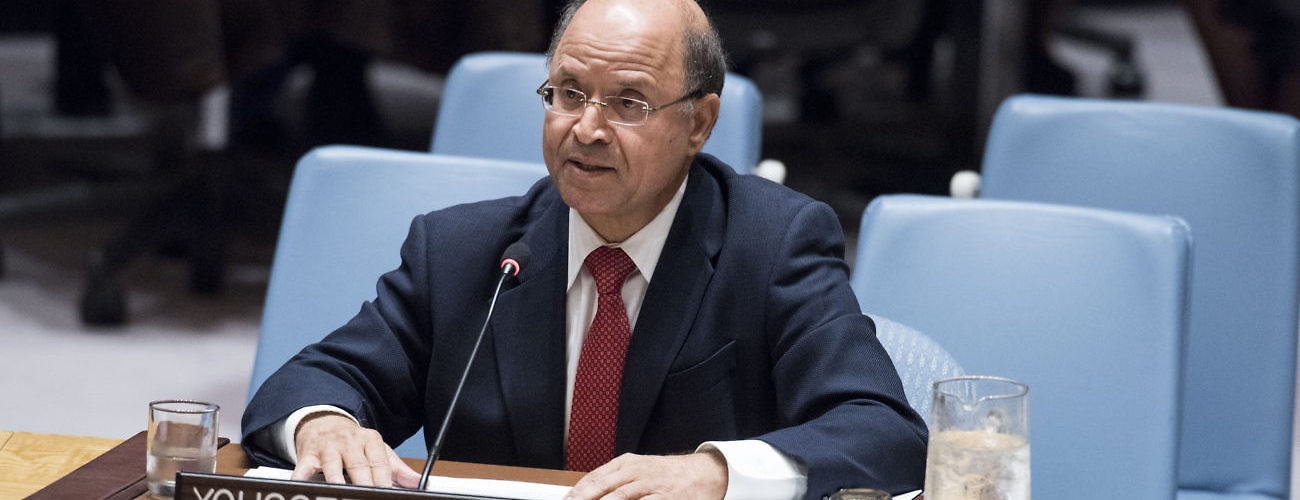Briefing the United Nations Security Council on August 29th, Youssef Mahmoud, IPI Senior Adviser, recommended a series of fundamental changes, both in attitude and practice, that UN peacekeeping operations should adopt to fulfill the paramount goal of sustaining peace.“Sustaining peace,” he noted, recalling the report of the High-Level Independent Panel on Peace Operations (HIPPO), on which he served, is the ultimate objective of UN post-conflict engagements, and he enumerated ways in which necessary shifts in thinking and acting might be brought about to further that purpose.
The first, he told the Council, was to realize that countries emerging from conflict “are not blank pages, and their people are not projects.” He said this meant capitalizing on what still works well internally in these countries and recognizing that “every society, however broken it may appear, has capacities and assets, not just needs and vulnerabilities.”
The second, he said, was challenging some of the assumptions and values underpinning provisions in current peacekeeping mandates. Strengthening central state institutions, for example, was believed to establish the best conditions for creating peace, he said, but “state institutions, as they are being strengthened, tend to be captured by domestic ruling elites concerned more about power than governance.”
The third, he said, was accepting that lasting peace cannot be attained by military or technical means but instead by acknowledging the centrality of politics. Though belligerents have decided, sometimes under duress, to move from violence to politics, the transition has often been fraught. “Where missions are deployed in hostile environments,” Mr. Mahmoud argued, “politics is the best force multiplier.”
In planning and reviewing peace operations, respect must be paid to the existing resilience of societies coping with conflict, he said, and to the regional character of proposed remedies since the drivers of instability tend to be transnational.
“And,” he added with emphasis, “because women and youth experience conflict differently, specific measures should be taken to ensure their unique perspectives are captured in all steps of this analytical exercise.”
He finally proposed the development of a new “strategic compact” for sustaining peace, to be initiated in response to a request from the Security Council. It would outline the responsibilities of the host country and other national stakeholders and the supportive role of the UN, and would include strict benchmark monitoring to assure accountability.
“This would be a strategic framework that would ensure inclusive, national ownership and the primacy of legitimate politics,” he concluded, “and would enable a mission to execute its mandate from a long-term sustaining peace perspective, whether the task is the extension of state authority or the protection of civilians.”
Without these kinds of fundamental changes, he warned, the UN “will continue to deploy peacekeepers into hostile environments with little or no peace to keep, where at times, the line between peacekeeping and peace enforcement becomes blurred and where the primary focus during reviews is largely on meeting the pressing operational and logistical requirements for overstretched missions.”








